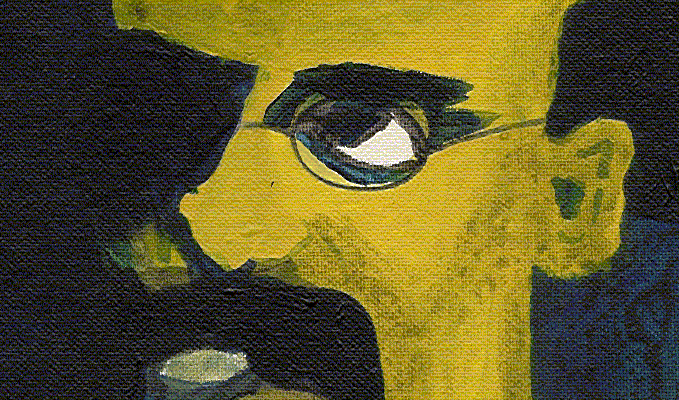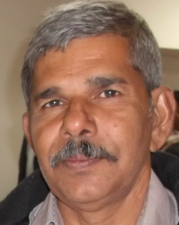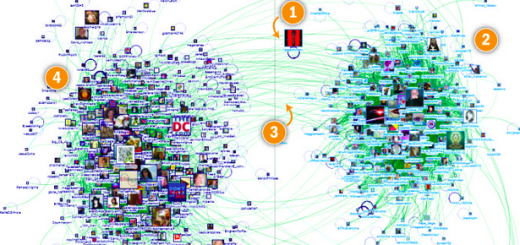Ethical Theories – 5

Shri Vergese Mathew Pamplani
This article is the summary of an extensive study and research done by Shri Verghese Pamplani and the last in the series. Links to previous posts are given below. This is for those who  are interested to know the facts and truths on which Christian Philosophy was founded. Shri Verghese Mathew Pamplani (75), originally from Kerala, is an enthusiastic reader and a gifted writer, who lives in UK now. He began his career as a teacher but ended up as Deputy General Manager in Reserve Bank of India – Trivandrum. By temperament, he is agnostic; his extensive reading has helped him to reinforce his thinking and beliefs. Joseph Mattappally (Asso. Editor)
are interested to know the facts and truths on which Christian Philosophy was founded. Shri Verghese Mathew Pamplani (75), originally from Kerala, is an enthusiastic reader and a gifted writer, who lives in UK now. He began his career as a teacher but ended up as Deputy General Manager in Reserve Bank of India – Trivandrum. By temperament, he is agnostic; his extensive reading has helped him to reinforce his thinking and beliefs. Joseph Mattappally (Asso. Editor)
Previous posts: Ethical theories -1: Ethical theories – 2: Ethical theories – 3, Ethical theory – 4
Contd: Christianity and democracy have promoted “slave morality” to defend the weak. Nietzsche Wants a “ master morality” to  encourage a ‘master morality” to encourage the development of the living.
encourage a ‘master morality” to encourage the development of the living.
8.An Existential Approach.
The bases upon which philosophers have sought to establish ethical theories are:
The sense of justice within society
The quest for happiness
The structure and purpose of moral order The emotions and natural sense of altruism Agreements between people
The expected results of action The pure practical reason
The will
Soren Kierkegaard ( 1813‐55)
The philosopher Hegel,who was very influential at the time of Kierkegaard, saw everything in terms of a broad collective process and movement. He is best known for his ‘dialectic ‘ in which a ‘thesis’ leads on to its opposite, an ‘antithesis’ resolving finally to a ‘ synthesis’. Every aspect of human life was set within this overall process. Any individual was seen as an example of a particular social change. In a sense one might say that a person is part of a process and is only understood by setting him or her within a social context.
Kierkegaard rejected this. He was a very religious man and insisted that the key relationship,was an individual with God and that God had given people freedom to make their own decisions. He therefore wanted to show that our existence is not something determined rationally or simply part of an ongoing process or abstract but was something quite specific. His philosophy starts with the individual and the choices that he or she makes.
He saw human existence as something that has created and shaped by personal choices. In his book Either/Or ( 1843 ) he argues for the importance of moral choice in this shaping process. For the choice being made with whole inwardness of his personality his nature is purified and he himself brought into immediate relation toy he eternal relation to the External power whose omnipresence impregnates the whole of existence.
Kierkegaard is generally regarded as the founder of existentialism. This is a school of philosophy which is particularly concerned with the nature of human existence and its meaning. It is particularly involved with the idea, central to Kierkegaard, that we have an active part to play in shaping ourselves and that life is a constant process of becoming in which our decisions are the agents of change.
Kierkegaard recognised that taking such a responsibility was not easy. He saw our freedom as something quite terrifying. It was an act of faith,a leap in the dark,to make a choice ,and yet one could not escape from it. He regarded( e. g. Hegel) who formed abstract schemes of thought in which to comprehend life and give to every action some place in the overall pattern as in some way escapist. The real challenge of life was not in such speculation, nor in a structure that could guarantee that a decision was right, but in the actual process of acting and making choices. In other words his challenge to ethical thinking is that one cannot understand moral choice by standing back and assessing it but only by engaging in choices, conscious of the Freedom to make a difference and shape ourselves.
Kierkegaard regarded it a challenge to become an individual and the implication of that is that a person’s “good” is whatever enables him or her to become a true individual.
Martin Heidegger (1889‐1976)
Heidegger approached the situation of human awareness and choice from an atheistic point of view. He recognised that most of our choices relate to existing relationships and commitments that are already established and presented to us. Thus we start from a given set of circumstances in which we find ourselves. This is not part of some divine plan, but are given as an accident of birth. His term for this ‘thrown‐ness’. From the moment of our birth we are given a set of conditions within which to live,we have not chosen them,they are just there. We are a part of the world and our choices are made as part of this world. As we face other people we form an image of them in our mind. That image is not the actual person( we are cannot know them fully) but is like a mask we impose on them. One might think in terms of those who perform a function. Equally a person may have the mask of wife, husband,son,daughter,lover, stranger,or enemy. And ,of course,as they look at us other people project on to us the same sort of masks. When one makes choices when one acts how one should behave?. Should one conform to what other people expect of one. Should one at being what others expect. If so does one lose one’s integrity. What is the real one, beneath these masks and social roles? How can one live an authentic existence?
These are the key questions for an existential approach to life and to life and to particular to ethics. Existentialism combines a sense of the importance of exercising the will and of recognising the freedom that choice implies but it also recognises that we do not exercises our wills,nor we free in a vacuum. We are thrown into life into a particular set of circumstances. We are given a set of roles to perform and we realise that our lives are seen in a limited way by others. In the light of all of this one needs to escape from the expectation of others and affirm one’s own authentic existence and freedom.
There. Is a additional,motivation to start taking responsibility for our lives, that is the fact of death. Heidegger makes the point that it is anxiety in the face of the inevitability of death and therefore the very limited nature of our life that motivates us.” In other words there is a thrown‐ness about our being born and about the prospect of our own death. The challenge is is to know how to achieve our authentic existence in the brief space in between”.
Jean‐ Paul Sartre (1905‐80).
Sartre emphasised the creative the creative role of an individual in shaping himself or herself. He did this by emphasising that existence ,for human beings, comes before essence. In an inanimate object designed by human,essence is determined before –hand. For such an object their essence proceeds their existence.
Sartre took the view that human beings in what they do and the choice they make shape their own lives. There is no fixed ‘essence’ for a human to discover and live up to. “I am something that will develop a particular character, an essence,as I go through life. My essence grows through my existence “. In his famous phrase which sums up what existentialism is about: “Existence precedes essence”
Sartre held that we chose our emotions and our motivations and these may be traced back to an”original choice” that is the basis of motivations and which must therefore itself be unmotivated . But such a”choice wold be absurd “. Therefore however reasonable and directed subsequent choices and motives would seem to be,all our life is fundamentally based on absurd.It cannot be rationally justified in terms of anything else.
Like Heidegger it is important for Sartre that a person should not simply accept the roles that others might allocate but should allow his or her sense of self to expand outwards to take in the things that are experienced.
Sartre sees human consciousness as “being for itself” which is contrasted with the things of which we are conscious,which are “being itself”. This distinction is very important for it characterises two different ways of being in the world. It is possible to become aware of the external world to reflect up on it and relate to it in such a way that it becomes part of one’s own consciousness . On the other hand it is possible to refuse to take any active engagement with experience and simply accept the roles other people impose on you . In this case you become an object .
In the act of choosing according to Sartre one makes clear the values one hold for humankind in general. The existential task is to develop and take in new experiences shaping oneself all the time. Life is a challenge and a project. In practice Sartre took the view that one should allow to everyone else the freedom that one wished for oneself, thus creating a basis of mutual respect for oneself and other people. This approach provides the framework within which the self is to be developed.
Ethical implications of the existentialist approach
The views about human life and its choices that characterises existentialism clearly have implications for ethics. First of all it is clear that individuals have their own project and therefore that the choices they make will reflect that. Existentialism therefore rejects the Imposition of moral codes,rather each person has to decide for himself or herself. It is most important to reject all attempts to have masks or images imposed on us,we should be free to reject all conventions.
It should be pointed out that for Sartre God does not exist and that we are free to to make our own choices,does not provide mankind with an easy option.
“The existentialist ….thinks it very distressing that God does not exist,because all possibility of finding values in a heaven of ideas disappears along with Him ; there can no longer be an a priori Good, since there is no infinite and perfect consciousness to think it. Nowhere is it written that the God exists,that we must be honest, that we must not lie, because the fact is we are on a plane where there are only men. Dostoyevsky said If God didn’t exist,everything is possible. That is the very starting point of existentialism. Indeed everything is permissible if God does not exist and as a result man is forlorn because within him nor without does he find anything to cling to. He can’t start making excuses for himself. “Existentialism and Human Emotions,1957).
It is clear thar a person has to accept responsibility for his or her decisions and the implication of such freedom is that it should allow the same freedom to others. Thus it is inconsistent to reject conventions that other people might want to impose on me but at the same time to seek to impose them on others. On other hand this rejection of all external aids and structures although it emphasises freedom is not an easy option. It brings both responsibility and a sense of loneliness for we have to find within ourselves the courage to,to make choices and live with the results. We are what we make ourselves,and that can be quite daunting.
I act within the world. I do not simply watch while the world offers me ready‐planned options or allow it determine what I should do. If I think of myself as part of that external world then I myself an object, part of other people’s etre‐en‐soi, to use Sarre‐s term. Once that happens I loose my freedom, I become part of a determined system of cause and effect. My awareness of myself as a free and responsible agent disappears.
What existentialism keeps open is the awareness of the significance of what happens when a person makes a choice. It is a point of freedom and/or responsibility, it is an expression of of that person’s individual existence, and at the same time it is the point at which his or her values are expressed.
Summary List
Kierkegaard emphasised the importance of the individual moral choice and its personal consequences.
Heidegger pointed out that our choice are made in the context of the given facts of our life. We try to live in an authentic personal existence in spite of the roles that other people might give us.
Sartre went on to say that human beings shape their own lives and do not have fixed essence. They become what they are through the choices they make.
9. Situation Ethics
In the 1960s both in the USA and in Europe there was widespread reaction against what was seen as the narrowness of traditional morality. It was time of social change and of a quest for freedom of self expression.
One book which reflected that social change was Joseph Fletcher’s Situation Ethics (1966). In it he opposed a deductive method of ethical reasoning : that is,he felt that it was unwise to start from fixed rules and then deduce from them what should be done in any particular situation. This method it is called casuistry ( casuistry,is the term used for the process whereby the general principles of a natural Law are applied to specific cases and it is used generally for any system that starts with fixed principles and then apply them logically to individual situations the word ‘casuistry’ tends to have have pejorative sense in that a moral assessment based on it depend on the skill of a person who is arguing the case for or against it)
On the other hand Fletcher wanted to maintain what he saw as the fundamental feature of Christian morality, the law of love.he therefore argued that there should be a single and simple principle in the light of which individuals could work out what was right for their particular circumstances and the situations in which they found themselves. “He claimed that the only absolute rule was that of love . In any given situation the right thing to do was that which love required”.
He recognised that that people would not always be able to decide what was right without help and he conceded could help to inform a person’s decision. Nevertheless ultimately it was not the rules that counted but the principle of love. Where love demanded that a conventional rule should be set aside it was right to do so. Rules could not be absolutely or universally valid.
The theologian Paul Tillich had argued in his book ‘morality and Beyond’ ( 1963) that if there were no rules people would always to work out time and again what was the right thing to do and in practical terms this would be impossible. He had accepted that the rules should offer guidance only. In practice Tillich’s position is rather mor conservative.
The meaning of love
Here the the sort of love spoken about is best summed up in the Greek term “agape” (selfless love) and amoral theory that applies love to each situation can therefore be called “agapeism.
Summary List
Situation ethics argues for a single law of love,in any situation,do whatever is the most loving thing.
Individual people and situations thus take precedence over general moral rules.
There was always been a tension between the rule and the individual situation and Fletcher’s work simply reflects this in the context of Christianity and the social trend of his time.
10. Religion and Ethics.
Ethics deal with issues that are also concern of religion. Ethical theories are produced from within a culture and historical period and are therefore influenced by the prevailing modes of thought including those of religion. It is possible that religion will influence ethics even where ethical theory is justified rationally and therefore appears to be independent of any religious authority.
Many of the key thinkers wrote either from within or in direct opposition to religion or the moral principles offered by religion. Augustine and Aquinas attempted to give arguments in support of Christian doctrine. Nietzsche and Kierkegaard both reacted to strict religious upbringing although taking very different views of religion. Fletcher’s situation ethics was clearly a way of modifying a conventional set of religious moral rules to fit with other more radical religious principles.
We need to recognise that the ideas of right and wrong and statements about the nature of the good life are based (consciously or unconsciously ) on a general understanding of the world and humankind’s place in the overall scheme of things.
Autonomy: morality (or ethics) is autonomous if it is independent of religion. If its principles are justified on the basis of reason or experience alone without reference to religious concepts . That does not mean that such an ethical system is opposed to religion., nor does it mean that it cannot be held by someone who is also religious. It is simply declare that the theory does not require any prior assent to religious ideas. Utilitarianism is autonomous. One can agree with its principles without reference to religion.
Heteronomy: Morality is heteronomous if it depends upon religious beliefs or it has been devised in such a way that it presupposes ideas and values are given by religion rather than being presented on the basis of reason or experience alone. The Roman Catholic Church has a Canon Law with 2414 of cannons dealing with the details of behaviour and to simplify the process of casuistry by which the principles of Natural Law would be applied to individual situations. From the ethical point of view they are heteronomous, they are not the result of individual’s thinking about morality ,but are either imposed or willingly accepted by individuals as a part of their commitment to a religion. It could be argued that the idea of Natural Law is theonomous since its idea of an uncaused cause as the creative source of all and suggests that there is a sense of purpose in the universe and therefore a final end to which everything tends. As presented by Aristotle such ideas predate Christianity but as Aquinas uses them they are an expression of his belief in God. The same source provides the basis for ethical theory and the religious beliefs.
Obedience to religious rules out of fear of punishment or abdicating personal responsibility in favour of external religious rules detracts from personal freedom and choice. Can one really say that one has made a moral choice when one simply acts out out of fear of punishment ? If one is motivated by fear is one really free.?
We live is multi‐faith culture. Different religions offer different moral rules and regulations and some of these conflict with one another. If one is to make a personal choice one needs to use one’s reason to assess and choose between them. Such a choice implies moral autonomy.
If God is omnipotent( can do anything )and omniscient(!knows everything) then He knows what a person is about to choose to do and able to prevent him from making that choice if He chose. If one believe this,then he cannot accept sole responsibility for his actions,since God is always an accomplice to his deeds by making them possible. Moral responsibility require freedom to make decisions and act on them implies moral autonomy.
It is one thing to come to a conclusion about what we consider to be right or wrong. Quite another to have the courage and conviction to put that morality into effect. For some people religion provide the courage to do so.
Iris Mudroch has argued for a fundamental awareness of “the good” as basis for morality and such awareness continues even in the absence of religion.
Philosophers from Schopenhauer ( who saw fundamental unity of all things beneath the multiplicity of sense experience) to G.E. Moore (who argued that the concept of ‘good’ was known by institution and was simple,unable to defend) have found their ethical systems resting on that which cannot be described rationally,but has to be approached through some form of institution or immediate awareness
11. Post Script.
" the ..good has nothing to do with purpose ,indeed it excludes the idea of purpose. ‘All is vanity ‘ in the beginning and end of ethics . The only genuine way to be good is to be good “Good for nothing” in the midst of the scene where every”natural” thing including one’s own mind is subject to chance, that is, to necessity. That”for nothing” is indeed the experienced correlate of the invisibility or non‐representable blankness of the idea of God itself” (Iris Mudroch—The Sovereignty of Good,1963) .
Summation
During the last decades of the 20th century, there was a revival of interest in applied ethics.
With increased emphasis on professionalism and the need to justify professional judgement in the courts, ethics plays an important role in establishing what is to be regarded as acceptable practice within an increasing number of professions.
The fundamental sense of the “good” even if that cannot be defined continues to inspire work on ethics.
(Prepared by Vergese Pamplanil from the book ‘Ethical Theory) by Mel Thompson. Mob. 9447152533.
Email : pamplanil@gmail.com/ pmvparijat@gmIl.com
















